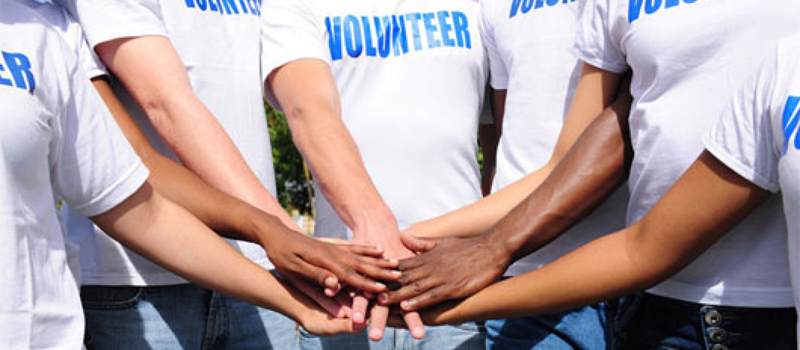
OR
Volunteering


Sanjeev Dahal
The author is the Director of Operations at Nepal Orphans Home that mobilizes both Nepalese and international volunteers in different service projectssanjeev.dahal@nepalorphanshome.org
More from Author
Volunteers visit Nepal for many reasons: to get away from a mundane life, to do something good, to get over a break-up.
Nepal has seen a surge in volunteerism in recent times. Although volunteers of various ages and backgrounds come to Nepal, the largest share is comprised of young volunteers, from the global North, who come here to help out in different activities. Being involved in an organization that annually mobilizes about 100 volunteers from around the globe in service activities in Nepal, I frequently ask foreign volunteers about their motives for undertaking this exciting yet daunting task.
I meet volunteers who come for different reasons: to get away from a mundane life, to do something useful for humanity, to spend their free time, to get over a break-up, to utilize the funding available at the university, to do something good while travelling (voluntouring), to search for meaning in life, among other motives. They come for different reasons and therefore attach different meanings to volunteering.
In the recent past, I hosted a group of anthropology students and a professor from Evergreen State College (in the US) on their study abroad program called “Movements and migration”. At the end of volunteer placements for two weeks, the group met, facilitated by Prof Karen and Hillary, former study abroad students in Nepal who are currently volunteering and learning Nepali. They reflected on their experiences, learning, opportunities and challenges and shared what it meant to be a volunteer.
Almost all students shared that they learnt more than they gave as volunteers. Nick shared feeling like a liability for the host family, as if his presence disrupted their daily schedule. He felt there were very few things he could help with—even though the host families were always happy to teach him how to do things and were very appreciative—it would be much faster if they did the work themselves. But Nick hoped that at some point he would be more of a help.
Volunteers are extra hands, Hannah shared. She shared her observation that the organization —a free school for underprivileged children in Basundhara—was capable of running without volunteers. Tess, also volunteering there, was of the view that since volunteers are extra hands they can do things that would otherwise not be done. Lillian added her Bal Mandir experience where she was initially asked not to do anything and to not touch children! She shared being baffled but her perseverance helped her build better relationships with the didis, who later supported her initiatives. It wasn’t easy—she started out with cleaning the floor, washing blankets and offering help wherever needed, and those extra hands were appreciated.
Taking initiative was another reemerging theme in the discussion. Alexis shared that it helped her build significant relationships with the people, not just at the school she was volunteering in Pokhara, but also in the broader community. She shared her excitement at being invited to people’s home for meals, to pujas and celebrations. Mariah shared how her happy moments in the classrooms volunteering in the remote village of Dumrikharka in Ramechhap were result of initiative-taking: whenever a teacher was absent she would help the kids learn English. Jade shared learning a lot about Nepali culture while staying with a Nepali family in Gaushala.
Amber, who volunteered at Blue Diamond Society, was writing responses to the Ministry of Women, Children and Social Welfare and leading research in same sex marriage, and offering help. Jack, who helped CAP Nepal—an NGO working on trafficking—believed that putting yourself out there and grabbing any opportunity to help and learn enriches volunteering experience.
“When I was helping my host family in Tutung [a small village in Nuwakot], I wasn’t only doing the tasks but also thinking about macro issues”, Shiloh shares, giving her ample opportunity to contemplate. This experience was echoed by all volunteers for whom the two weeks’ engagement was transformational. “I read before going to Khwopa Changu that there were no roads and electricity and running water and very little infrastructure and I was wondering how people would live in those circumstances”, Robert shared after coming back from an isolated village in Dolakha. But after living there, he realized that they don’t need these amenities. He said he wondered how life would change when some of these facilities were added and if it would change for better or worse. Alexis shared contemplating on the meaning of life and wanting to dissociate from the rat race many Americans engage in, being “slaves of the State” and “waking up to loans”.
Not having preconceptions of how a classroom or a school or a hospital ought to be is important, the volunteers echo, otherwise you might end up frustrated and not being able to do much. We cannot change the system because we are here for a short time, so working with the system and helping make things better is how we can be more helpful, the group agreed.
“It was interesting to experience the Nepali healthcare, first hand”, Hannah shared after being in a hospital for a few days. “It was the most uncomfortable time in my life, with a cramped hospital, having to share the room with several other men. But the people were so nice, the nurses and doctors took very good care of me and we had interesting conversations”, she added. Alexis had read about corporal punishment and shared being totally against it, “but what do you do when the teacher beats a young child in front of you?” she asked the group in despair. Perhaps she was frustrated at being unable prevent the kid from being beaten.
Following up, Hillary pointed out that similar things happened in the United States and everyone agreed that there are so many things that you consider undesirable happening all over the world. But it is different when you read about things and when they actually happen to you. It was agreed that getting the local perspective is important to understand a society and its practices.
Based on my interactions with many volunteers and my own volunteering experiences in Nepal and abroad, I agree that the themes which emerged in these discussions are important and interesting facets of volunteering. And volunteering is largely a subjective experience, depending on the glasses you wear, thus allowing each of us to find our own meaning of volunteering and to explore its various facets.
The author is the Director of Operations at Nepal Orphans Home that mobilizes both Nepalese and international volunteers in different service projects
sanjeev.dahal@nepalorphanshome.org
You May Like This

Young thinkers
You cannot only blame schools and teachers. Parents are equally guilty for the poor state of our children’s education ... Read More...

Is your Google identity helping or hurting your career?
Your Google results paint a picture of who you are and reveal how visible you are on the web; and... Read More...







Just In
- NRB to provide collateral-free loans to foreign employment seekers
- NEB to publish Grade 12 results next week
- Body handover begins; Relatives remain dissatisfied with insurance, compensation amount
- NC defers its plan to join Koshi govt
- NRB to review microfinance loan interest rate
- 134 dead in floods and landslides since onset of monsoon this year
- Mahakali Irrigation Project sees only 22 percent physical progress in 18 years
- Singapore now holds world's most powerful passport; Nepal stays at 98th











Leave A Comment